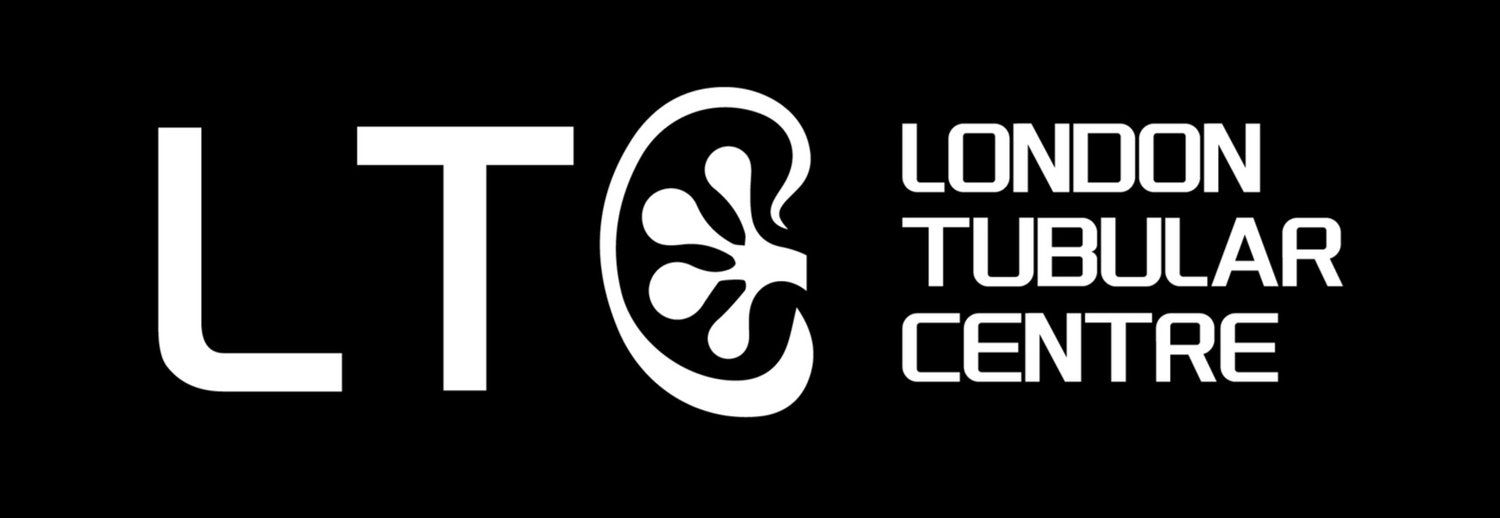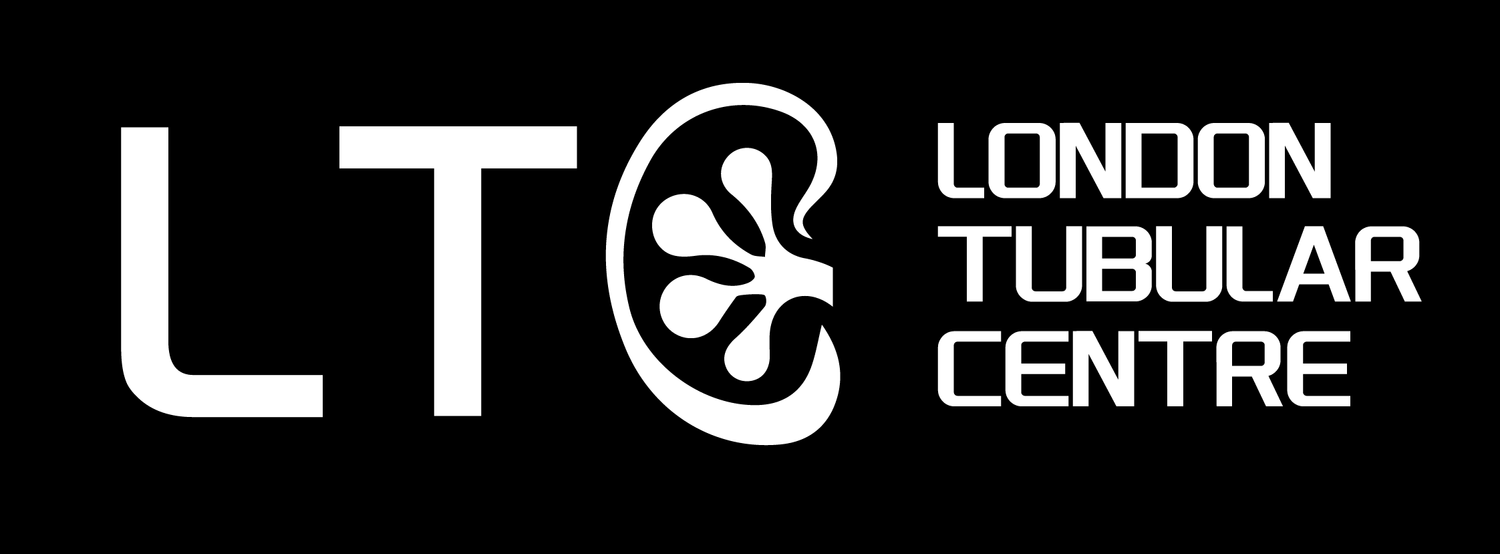Distal Renal Tubular Acidosis
Image from Creative Med Doses
Distal Renal Tubular Acidosis (dRTA) is a group of genetic or autoimmune diseases where the kidneys are unable to get rid of acid in to the urine properly.
The genetic causes are caused by mutations of parts of an acid secreting protein (ATP6V0A4, ATP6V1B1) or a bicarbonate transport protein (SLC4A1).
The main autoimmune cause is Sjogren syndrome, which almost exclusively affects women.
-
Because this disease causes a failure of acid secretion in the kidney, it builds up in the body, causing acidosis. Acid build up causes a release of phosphate and calcium from bone, which can cause abnormal bone thinning (osteomalacia). The calcium that is released from the bone is excreted in the urine (hypercalciuria), which can lead to kidney stones and calcium deposition in the meat of the kidney (nephrocalcinosis). And because of the failure of kidney acid secretion, there is wasting of potassium in the urine, which can cause low levels of potassium in the blood (hypokalaemia).
Kidney stones and nephrocalcinosis can cause repeated urinary tract infections, and pain which is often very severe.
Patients with genetic dRTA and mutations in ATP6V0A4, ATP6V1B1 may have nerve deafness, as these genes are expressed in the inner ear. Patients with mutations of SLC4A1, may have abnormal red blood cells. -
Distal Renal Tubular Acidosis caused by mutations of ATP6V0A4 or ATP6V1B1 is inherited as a Recessive genetic disease. dRTA caused by mutations of SLC4A1 can be inherited either as a Dominant genetic disease (generally in Europe) or Recessive genetic disease (in South East Asia and other tropical regions). We offer genetic counselling for patients with dominant disease who are considering having children.
-
We routinely use genetic testing to confirm the diagnosis. Sometimes we also use a special test called a Urinary Acidification test to test for dRTA at the London Tubular Centre.
-
There is currently no curative treatment for the genetic forms of dRTA. We use supplements to replace alkali and potassium, we use one supplement to do this, potassium citrate (in a formulation called UroCitK). In the correct amount, this will correct the acidosis, low potassium and the excess calcium in the urine.
For patients with autoimmune dRTA, we use medications to supress inflammation; we use Mycophenolate and a weaning dose of the steroid prednisolone. This is usually well tolerated and makes many of the other symptoms of Sjogren syndrome better.
Kidney stones often require surgical intervention by a urologist, including using sound waves to break up the stones, or using an endoscope with a laser to shatter the stones, and rarely, an open operation to remove large stones. -
Genetic forms of dRTA are incurable but the overall prognosis from the kidney point of view is good, chronic kidney disease is very unusual.
Sjogren syndrome associated dRTA, is usually milder than the genetic forms and mycophenolate often causes a partial recovery in kidney function.


